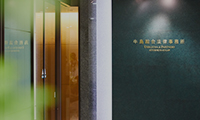1. Introduction
On February 15, 2018, the Supreme Court of Japan held that when an employee of a subsidiary company lodges a claim with the compliance consultation contact of the parent company, the parent company may be obligated by the principle of good faith to appropriately respond to such a claim. Based on the said Supreme Court judgment, this newsletter explains the legal liability under Japanese law of a foreign-based parent company with respect to a whistleblower claim filed by an employee of its Japanese subsidiary, and appropriate actions to be taken by the foreign-based parent company.
2. Outline of the case in which the Supreme Court rendered the above judgment
Company Y1 is a parent company with a number of subsidiaries, and has a compliance consultation contact (the “Consultation Contact”) for employees who work at Y1 and/or Y1’s subsidiaries to file claims regarding compliance matters, etc. Company Y1 made efforts to inform employees about the existence of, and encourage the use of, the Consultation Contact.
X used to work at a workplace of Y1 as an employee of Y2 (a subsidiary of Y1), and Y worked at the same workplace as a section chief of Y3, another subsidiary of Y1.
X consulted her supervisor (subsection chief of Y2) regarding Y’s acts of sexual harassment, etc. against her but the supervisor did not even admonish Y. Y did not stop his acts of sexual harassment, etc. and X eventually left the company. A colleague of X (an employee of Y2) with whom X consulted about the matter reported Y’s acts of sexual harassment, etc. against X to the Consultation Contact established at Y1 and made a request for taking actions including an investigation of facts.
In response, Y1 instructed Y2 and Y3 to conduct a hearing of Y, but Y1 itself did not interview X and concluded that there were no such acts of sexual harassment, etc. as reported.
X filed a lawsuit seeking damages against Y, Y1, Y2 and Y3 for claims of sexual harassment, etc. by Y.
3. Outline of the ruling of the Supreme Court
The Supreme Court held as follows:
– Y1 set up the Consultation Contact, and made efforts to inform employees, including those of its subsidiaries, about the existence and use of such contact. Further, Y1 responded to the claim of X’s colleague (an employee of Y2). Therefore, it can be said that Y1 was expected to take efforts to appropriately respond to claims filed with the Consultation Contact by employees who suffered from any act of violation of law or regulation occurring in any affiliated company.
– Accordingly, depending on the specific circumstances of the claim, Y1 may be obligated by the principle of good faith to receive the relevant claim and appropriately respond thereto in accordance with the established system and the content of the consultation pertaining to the relevant claim, etc.
(However, in this case, the Supreme Court did not find such obligation based on the principle of good faith with respect to Y1 because, among other reasons, the claim was made after the elapse of a considerable period of time from the resignation of X.)
4. Actions that should be taken by a foreign-based parent company
In the past, there were cases where a scandal of a subsidiary company was exposed to a third party without the knowledge of the parent company, which led to the destruction of the credit of the group companies as a whole. Therefore, it is generally advisable for the parent company to build a system to receive claims from all employees, including those of its subsidiaries, from the viewpoint of risk management.
However, the Supreme Court held that in the case where the parent company has a system to receive whistleblower claims from employees of subsidiaries, the parent company may assume liability to compensate for damages if the parent company merely leaves the investigation to the relevant subsidiary and does not reasonably respond to claims on its own.
Also, if a parent company responds to claims from employees of its subsidiaries perfunctorily, very few employees, if any, will file claims with the parent company which makes it meaningless to have such a system to receive claims from employees of subsidiaries.
Accordingly, a foreign-based parent company with a subsidiary company in Japan should establish a system to receive claims from employees of the Japanese subsidiary, investigate the facts, and examine and implement appropriate countermeasures when it receives claims from an employee of the Japanese subsidiary.
End


